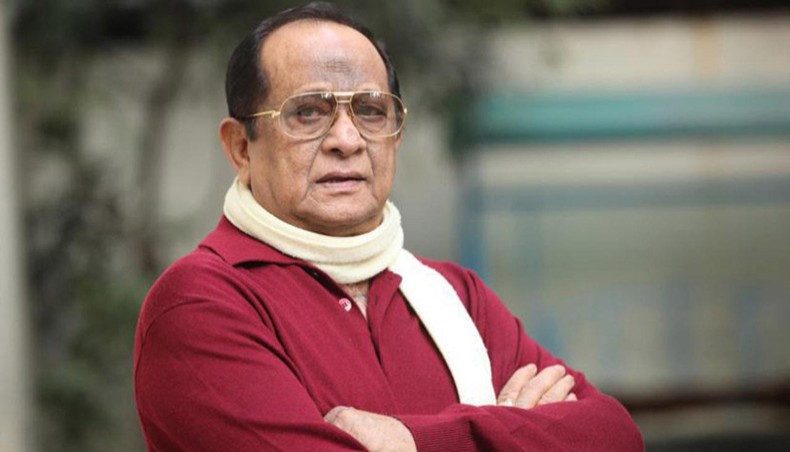By : Udayan Namboodiri
The passing of Mehdi Hassan (84), one of the greatest Hindustani classical singers, in Karachi on Wednesday (June 13th), was mourned across South Asia. Though a lung disorder since 2002 made it harder for this diversely talented artist to record new music or perform live, the flood of tributes demonstrated his continuing appeal, crossing national and religious lines.
“I grew up hearing Mehdi Hassan’s songs on cassettes and discs. Teachers held him up as the ideal. With him gone, we have lost a guiding star,” Shreya Ghoshal, a new generation Indian singer, told Khabar South Asia.
“Mehdi Hassan had the voice of God,” singer Lata Mangeshkar told the Indian public broadcaster, Doordarshan.
The late musician tapped into a shared cultural heritage which still unites Indians and Pakistanis, despite their differences in other arenas. According to Manna Dey, a 91-year-old classical and popular singer, this commonality has helped counterbalance the recurring tensions between the two South Asian neighbours.
“Mehdi Hassan helped maintain sanity among the politicians of the two countries. Successive heads of both countries were forced by public demand to allow the free flow of culture between the two separated nations.”
In the southern town of Kozhikode on the Arabian Sea, hundreds of fans assembled Thursday for a hastily organised prayer. P.V. Abdul Wahab, a local politician, told IBN Live that the late singer had given his last public performance in India at this location.
“It happened back in 2000 when he was here for treatment for his ailments. He had sung for more than 90 minutes and was so impressed by the enthusiasm of the crowd that he promised to return after getting better. Of course it was not to happen.”
A tradition from the Mughal era
Hindustani classical music blossomed in the court of the Mughal emperors, who held sway over the subcontinent for four centuries until the arrival of the British. Each region and even small towns of northern India evolved its distinctive tradition of the art form. Mehdi Hassan, who was born in Rajasthan in 1927, was the last in the “Dhrupad” style of ghazal rendition.
A ghazal song is typically about love or expressions of pain over separation or romantic memories. That’s the chief reason why ghazal-based popular music quickly became a staple of Indian movies. “Some of the greatest smash hits in Bollywood are ghazal-based,” Anupam Kher, a film star and fan of Mehdi Hassan, told Khabar.
Partition of the subcontinent along religious lines in 1947 uprooted not just millions of ordinary Hindus and Muslims, but also the musicians who lived off Hindustani music. “Patronage came from princes, the land-owning gentry and minor lords. But after democracy came, many of the gharanas [distinct schools of music] were forced into extinction,” R.K.Pandit, dean of music history at Delhi University, said.
Mehdi Hasan moved with other ghazal noted musicians to Karachi. There, in the early days of the new nation of Pakistan, he was forced to eke out a living as an automobile mechanic. Later, however, he revived his circumstances thanks to the Pakistani movie industry. It wasn’t long before his melodious voice hit India.
A continuing rapport
The ability of music to unite when others divide remains potent across both sides of the India-Pakistan border. Many contemporary musicians from both countries have managed to avoid getting caught up in the rhetoric, which has led to three major wars and ongoing conflict in the disputed region of Kashmir.
Despite an arms race, nuclear standoffs, trade embargoes and bans on cricket games, each year sees dozens of Indian and Pakistani singers cross borders to participate in musical soirees.
In March 2010, 31 children from both countries held a widely publicised session of Sufi songs at the mausoleum of the 13th century Sufi saint, Hazrat Khwaja Moinuddin Chisti, in Ajmer, Rajasthan.
The biggest beneficiary of this cultural rapport is Bollywood. At any given time, more than a dozen Pakistani singers, musicians and composers generate new business in India’s tinsel town and scores of hit songs are recorded each year by these padosi (neighbour) artists.
The financial solvency of India’s film industry has been a major contributing factor. “The reason for that is obvious; there is a thriving music industry in India riding on the back of movies. In Pakistan that is missing,” new generation singer Atif Aslam told Khabar.
And Indians don’t mind. “Bollywood maintains an open door for talent and the nationality of the artist is not important. We don’t harbour biases against Pakistanis,” film star Kher told Khabar.
The most visible proof of this is Adnan Sami, a British-Pakistani singer, who has recorded songs in 66 Bollywood movies to date, 10 of them as composer. In 2003, his song, “Kabhi to nazar milao” sold 2 million discs, an Indian record. Four nights a week, Sami is seen on “Sa Re Ga Ma Pa”, the country’s most popular TV reality show, which showcases budding talent.
“Many Indians are not even aware that Adnan is a foreigner, a Pakistani. That’s a victory for Hindustani music,” Kher said.
Mehdi Hassan may be dead. But the doors he forced the politicians of India and Pakistan to keep open may never shut.
Source: Khabar South Asia










